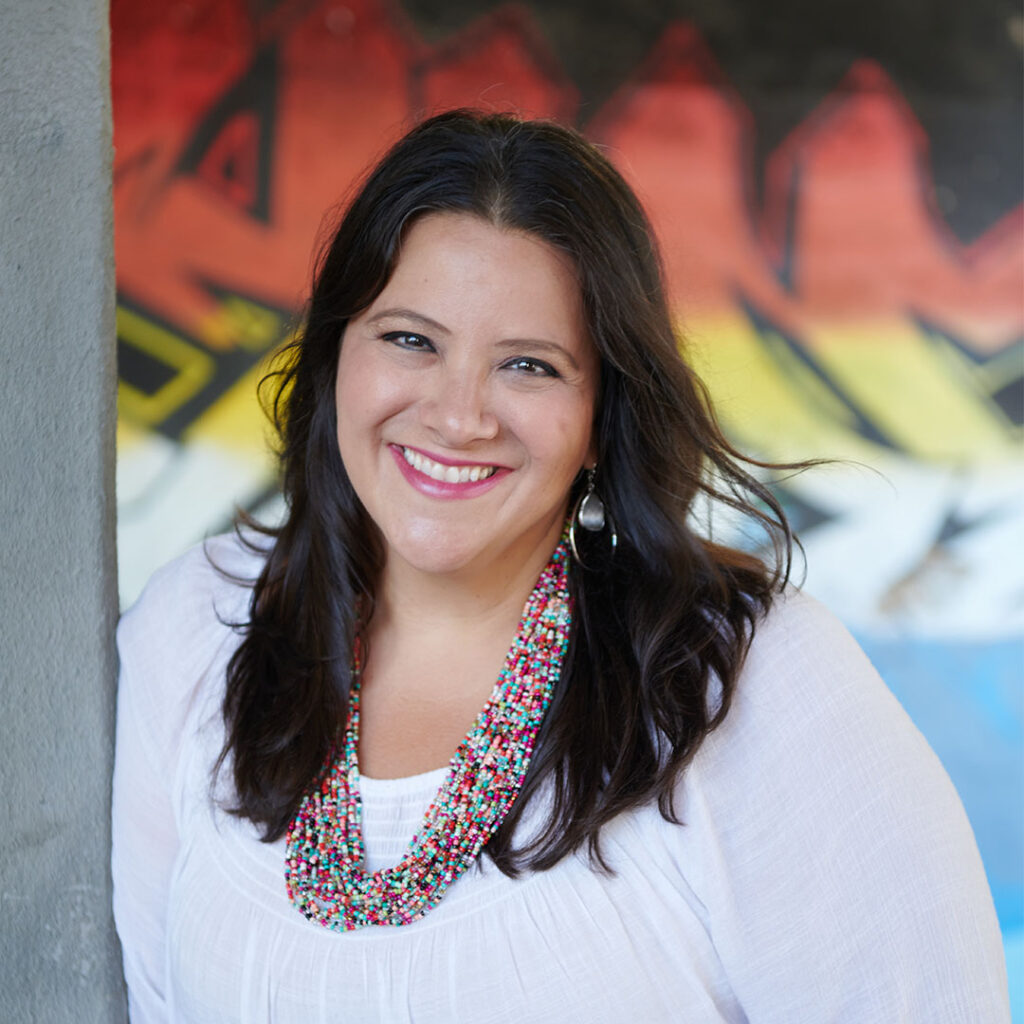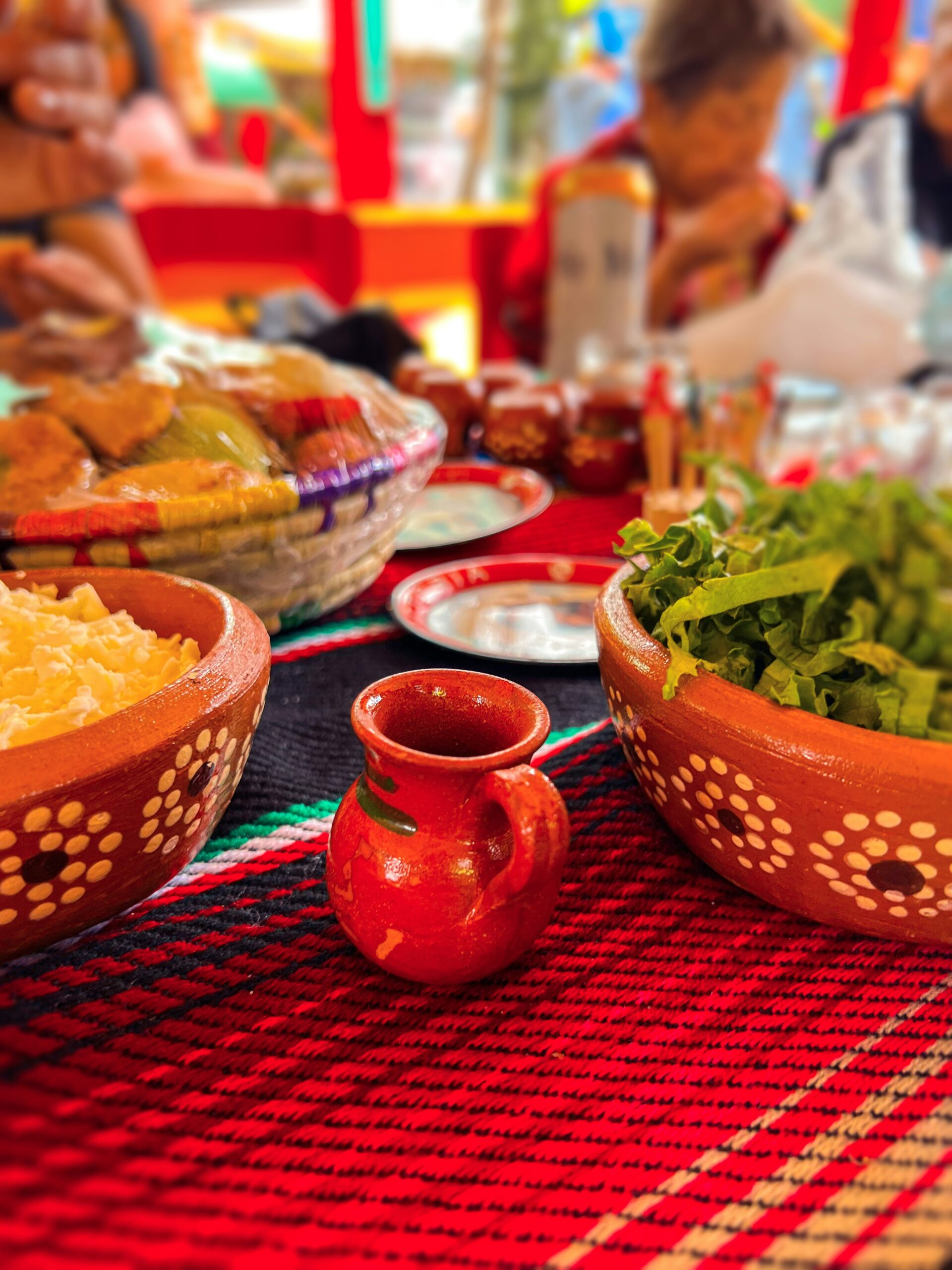“No Longer Strangers: Transforming Evangelism with Immigrant Communities,” edited by Eugene Cho, brings together diverse voices to lay out a vision for a healthier evangelism, one that honors the most vulnerable, and in doing so reveals the true power of the gospel. This is an excerpt from the chapter “Beyond Welcoming” by Chasing Justice director, Sandra Maria Van Opstal. Here she reflects on Paul’s reminder in Ephesians 2:19:
“So then you are no longer strangers and aliens, but you are fellow citizens with the saints and members of the household of God, built on the foundation of the apostles and prophets, Christ Jesus himself being the cornerstone, in whom the whole structure, being joined together, grows into a holy temple in the Lord.”
In the first part of this series, Sandra called us to embody the power of the gospel through solidarity. But solidarity only goes far. In this blog, she shares how solidarity needs to become mutuality that leads to the restoration that God wants for creation.
Mutuality was at the core of the early church’s witness in the world. The testimony of the church in Acts 4:31–37 centers around how they lived in mutuality. Note what is said about them upon receiving the power of the Spirit.
“When they had prayed, the place in which they were gathered was shaken; and they were all filled with the Holy Spirit and spoke the word of God with boldness. Now the whole group of those who believed were of one heart and soul, and no one claimed private ownership of any possessions, but everything they owned was held in common. With great power the apostles gave their testimony to the resurrection of the Lord Jesus, and great grace was upon them all. There was not a needy person among them, for as many as owned lands or houses sold them and brought the proceeds of what was sold. They laid it at the apostles’ feet, and it was distributed to each as any had need.” (Acts 4: 31–35)
The passage does not start by saying that the powerful and wealthy shared. It says that “no one” claimed any of their possessions as their own. This means that everyone brought what they had to the community. Did some have more material possessions than others? Of course. That is true today—some of us make four times what others of us do, often in the same congregation. What can’t be missed here is that they all shared. The Spirit empowered them, they developed relationships and were unified, and they shared everything.
From this lifestyle and practice of mutuality they witnessed and testified to the power of the gospel. God’s power was at work in them to live in a way where there were not givers and receivers but brothers and sisters. In a majority culture primarily focused on individualism, we are often blind to our deep need for this in our own relationships, let alone in our
churches and communities. As a result, we may miss what is sometimes called “cultural competence plus”: living out the idea that we need each other in the body of Christ.
Our church communities in the United States (especially those that are primarily white) are used to operating from the perspective that most church communities approach church life as we do. In reality, we have just as much (if not more) to learn and receive from global Christians as we have to teach and give. However, to truly enter into a space of mutuality, we must ask more of ourselves than we are accustomed to.
Ask More of Yourself
Mutuality involves vulnerability and dependence, acknowledging that we don’t “have it all together,” that we need each other, and that we have much to learn and many places where we need to grow. Imagine a place where this is lived out across cultures and socioeconomic power! To truly live out mutuality, we must remove ourselves from a position of power and acknowledge the fears and hesitancy of change in how we operate.
Karen Gonzalez captures the biblical nuance of hospitality and solidarity that leads to mutuality: “Ultimately, as the church, we are called to mutuality—to a perspective that says ‘We need each other.”
Again, there is a power dynamic that is often missed in our current approach to hospitality and even solidarity, whose subtext is ‘you need us,’ ‘we’re here to help,’ and ‘how can we fix this for you?’” Whether we consciously think this way or not, we perpetuate that power dynamic by approaching our ministry to immigrants in this way.
Romans 12:15 calls us to rejoice with those who rejoice, and mourn with those who mourn. In Luke 14, Jesus tells two parables of great banquets where the guests came from unexpected places. One example of how these things can come together is in the way that we worship.
Western worship styles generally don’t allow space for lament; our songs and traditions tend to leave out this aspect. However, other cultures practice this discipline regularly. So, how can we, in our Western, American churches, incorporate this practice and learn from those who do practice it?
One example is how we approach songs of worship. When planning songs of lament as part of a worship service, do we think, “We should sing this because Ananya and Sam (who come from cultures where lament is commonly a part of worship) are here today”? Or do we think, “How can we learn from this practice and allow Ananya and Sam to teach us what they’ve learned from Scripture about lament and how they incorporate biblical lament into worship?”
Ultimately, mutuality has a lot to do with awareness, and even cultural and emotional intelligence. When I come into a relational situation (a church service, a small group, a social gathering, or a meeting), am I aware of what I’m bringing to the table, whether literally or figuratively?
Am I willing to embrace my need for others to teach me, to be vulnerable about the areas where I need to grow, and to do so with love?
Embrace the Stranger
When we are able to get to a place where we embrace strangers rather than simply welcoming them, where we see them as family members (brothers or sisters), the church as a whole and its community become a witness for Christ’s love! We do this by practicing love in such a way that we communicate that “there’s something to be learned from every human being.”
Embracing the fullness of mutuality becomes our credibility in the Word. As Jesus reminded us, “They will know you are my disciples if you love one another.” And true love requires mutuality.
Gonzalez further amplifies this through the story of Hagar by showing us that we are also in need. While we may preach the gospel and connect others to the truth of Jesus, proximity allows us to encounter the presence of Jesus. Hagar in the desert reminds all of us that the Spirit can be found in the places we least expect: with the poor, the outcasts, the enslaved people, the domestic help, and the foreigners. God is present with anyone who is treated as a human resource rather than a human being. God shows up not just for the master and mistress of the house and the native citizens with rights but also for the undocumented maid in the kitchen. And who would have imagined that the undocumented maid didn’t just bring needs—for refuge or economic opportunity? Who knew that she also brought gifts: faith and devotion, hard work, talents, rich cultural traditions, and a family that would grow up and integrate into the adopted country?
People want to be seen, accepted, and included. This is especially true for communities that are socially marginalized. And it is amplified for groups that have experienced displacement, because they have been forced to leave their lands and feel disconnected from place and all that means. This is hard to understand for people in the United States, for whom mobility is an expected luxury. We have an impoverished understanding of place. Imagine the impact of dislocation on people from indigenous cultures, such as those coming from Mexico and Central America, who feel deeply connected to their lands and who have had to leave to survive.Imagine the opportunity for their inclusion that we have as Jesus followers.
When we think of Christ’s body, many of us think of Holy Communion or the Lord’s Supper. The practice Jesus gave us not only to remember him but “in memory” of him. The practice allows us to remember his many words to us about who he is and who we are. We are his body.
By inviting others to Jesus, we are inviting them to an embodied process of hospitality, solidarity, and mutuality with other members of his body. We are reminding them that when they say yes to Jesus, they are saying yes to his body as described in Romans 12:5: “so we, who are many, are one body in Christ, and individually we are members one of another.”
This is why we are urged by Paul to consider the importance of how this body functions together. He urges in 1 Corinthians 12:24–26: “But God has so arranged the body, giving the greater honor to the inferior member, that there may be no dissension within the body, but the members may have the same care for one another. If one member suffers, all suffer together with it; if one member is honored, all rejoice together with it.”
Jesus exemplified mutuality in every way: in the stories he told, in the way he related to others, and even in the way he died. When the church works to embody mutuality in their daily life, and especially in their approach to immigrants and refugees, we learn to lament, celebrate, and learn together.
Ultimately, this leads to the healing and wholeness that God wants for his creation! And this means not just doing but being the reflection of Christ’s love, which the church is called to be; to witness to Christ not just in our words but in our mutual identity as members of his body.
To read more, purchase the book here or check out the first blog in this series: Countercultural Solidarity: The Power of the Gospel.








